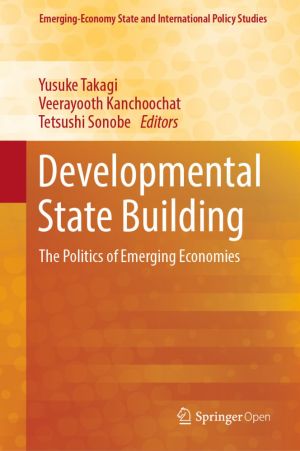- Регистрация
- 27 Авг 2018
- Сообщения
- 39,669
- Реакции
- 619,485
- Тема Автор Вы автор данного материала? |
- #1

This book modifies and revitalizes the concept of the 'developmental state' to understand the politics of emerging economy through nuanced analysis on the roles of human agency in the context of structural transformation. In other words, there is a revived interest in the 'developmental state' concept. The nature of the 'emerging state' is characterized by its attitude toward economic development and industrialization. Emerging states have engaged in the promotion of agriculture, trade, and industry and played a transformative role to pursue a certain path of economic development. Their success has cast doubt about the principle of laissez faire among the people in the developing world. This doubt, together with the progress of democratization, has prompted policymakers to discover when and how economic policies should deviate from laissez faire, what prevents political leaders and state institutions from being captured by vested interests, and what induce them to drive economic development. This book offers both historical and contemporary case studies from Japan, South Korea, Taiwan, Singapore, Indonesia, Malaysia, Myanmar, Ethiopia, Kenya, and Rwanda. They illustrate how institutions are designed to be developmental, how political coalitions are formed to be growth-oriented, and how technocratic agencies are embedded in a network of business organizations as a part of their efforts for state building.
Yusuke Takagi is Assistant Professor of the National Graduate Institute for Policy Studies (GRIPS), Veerayooth Kanchoochat is Associate Professor of GRIPS and Tetsushi Sonobe is Vice President of GRIPS.
DOWNLOAD:



